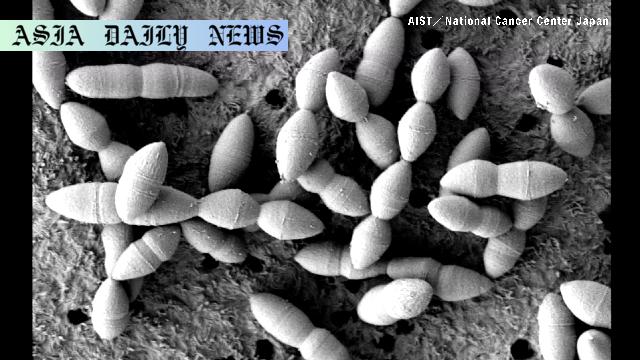Gut Bacteria: Researchers in Japan discover YB328, a strain that enhances the effectiveness of cancer immunotherapy in mice.
- Researchers in Japan identify gut bacteria YB328 that boosts cancer immunotherapy.
- Patients responding to treatment had higher YB328 presence compared to unresponsive groups.
- In mice experiments, YB328 effectively reduced tumor growth when combined with anticancer drugs.
- This discovery could lead to advanced treatments for patients unresponsive to current therapies.

The Role of Gut Microbes in Cancer Treatment
Gut microbiomes have long been suspected of influencing the success of medical treatments. Now, a groundbreaking study in Japan has shed light on how specific gut bacteria could be the key to unlocking the potential of anticancer immunotherapy drugs. Researchers from the National Cancer Center Japan and affiliated institutions have conducted a series of experiments that establish a clear correlation between the presence of a bacterial strain, YB328, and improved therapeutic outcomes. Published in the esteemed journal, Nature, this research has paved the way for innovative approaches to improving cancer treatment options for patients with minimal success from traditional therapies.
The study is built upon the understanding that existing cancer immunotherapy—though revolutionary—works effectively in less than half of all patients undergoing treatment. The inadequacy of these treatments often stems from a variety of factors, including the nuances of a patient’s microbiome. To explore the gut’s potential impact, researchers analyzed the stool samples of 50 cancer patients post-therapy. They discovered that individuals with successful treatment outcomes often displayed a higher concentration of the bacterial strain named YB328.
Research Design and Findings: YB328’s Effectiveness
To validate this discovery and move beyond observational studies, the researchers conducted experiments involving mice that had cancer and were stripped clean of gut flora. The team bifurcated these mice into two groups—one receiving YB328 via transplant and the other given a different microbe found in patients who had not responded to the cancer immunotherapy. Once prepared, both groups were subjected to anticancer drugs. Remarkably, tumors shrank significantly more in mice treated with YB328, offering not just a promising outcome but a direct causal link between the bacteria and immunotherapy efficacy.
Furthermore, the research revealed how YB328 functions. By activating immune cells, this bacterial strain appears to heighten the body’s immune response to target tumor cells, making anticancer medication much more effective. This mechanism unlocks a pathway for drugs to work in patients previously considered unresponsive, potentially revolutionizing cancer treatment.
Future Applications and Potential Impact
Dr. Nishikawa Hiroyoshi, a member of the research team from the National Cancer Center Research Institute, expressed optimism about the potential applications of YB328 in enhancing cancer treatments. By integrating the insights gained from these experiments into drug development, there is potential for creating supplements or medications that could improve the effectiveness of current immunotherapies.
This finding holds profound implications for medical science, particularly for oncology. Patients who remain resistant to traditional treatment methods could soon have an alternative: combining therapies with microbiome manipulation. The ultimate objective now is not only to advance research on YB328’s impact but also to explore whether other microbial strains carry similar or complementary properties.
As the scientific community increasingly regards gut health as a cornerstone of general well-being, this research further underscores the crucial interplay between gut flora and the immune system. While further studies are necessary to validate the findings in human trials, this work signals a seismic shift in cancer treatment paradigms.



Commentary
The Promising World of Gut Microbiome Research
The discovery of YB328 and its potential to enhance cancer therapies highlights how far medical science has come in understanding the intricate dynamics of human biology. The gut microbiome, once largely dismissed as a realm with secondary functions, has emerged as a powerful frontier in medical research. This study from Japan is a testament to the meticulous work of scientists determined to solve the persistent enigma of treatment resistance in cancer therapy.
A Game-Changer for Unresponsive Cancer Patients
What makes this finding particularly exciting is its potential to help those most in need—patients who do not respond to traditional cancer immunotherapy. For years, the outcomes of such cases were bleak, and research often yielded incremental progress. The identification of specific bacterial strains like YB328 feels like a significant leap forward. Imagine a world where gut bacteria, something we’ve lived alongside for millennia, could hold the secret to curing one of humanity’s most widespread diseases.
Challenges and the Road Ahead
While the results are indeed promising, there is still a long journey ahead before these findings can translate to widespread clinical applications. Human trials need to confirm safety and efficacy definitively. Moreover, the complexity of gut microbiome diversity across populations poses challenges, as not all patients may react similarly to treatments involving YB328.
Nonetheless, the significance of this research cannot be overstated. It reinforces the importance of collaboration across disciplines, blending microbiology with immunology and oncology. Future studies will likely delve deeper, exploring the role of other microbial species in cancer treatment, while also examining potential synergies between YB328 and existing drugs.
Conclusion: A Hopeful Outlook
This breakthrough serves as a powerful reminder of the untapped mysteries within our own bodies. Advances like this reaffirm that the answer to some of our most challenging medical issues may lie not in external innovation, but in understanding and harnessing the subtle powers already within us. If research can continue expanding upon these findings, it could transform the lives of millions living with cancer—and possibly revolutionize how we view medical treatment as a whole.